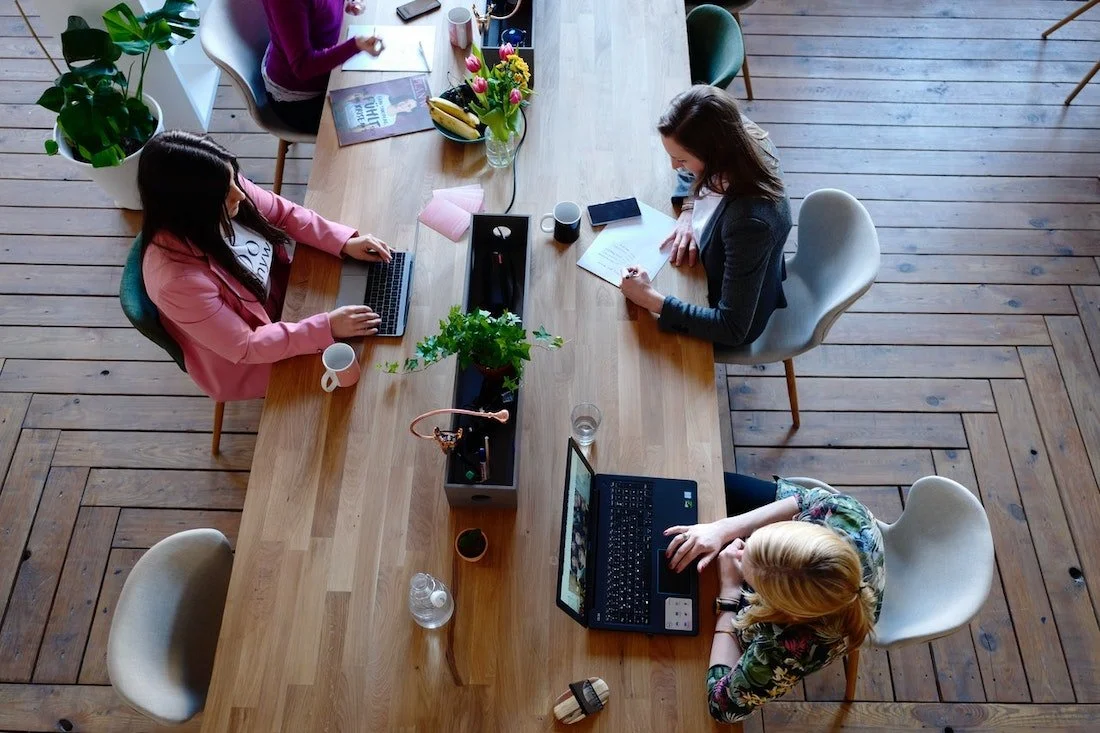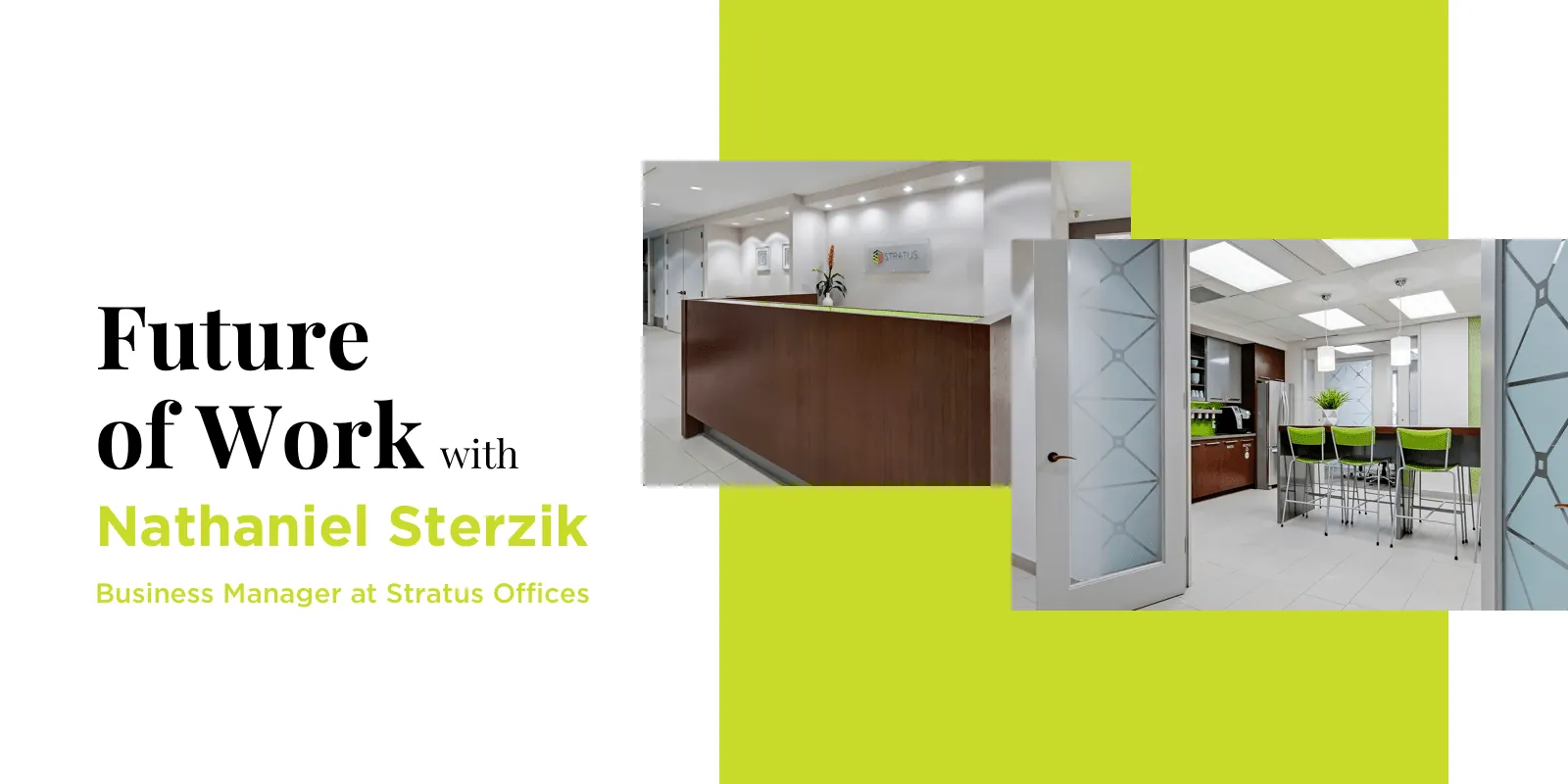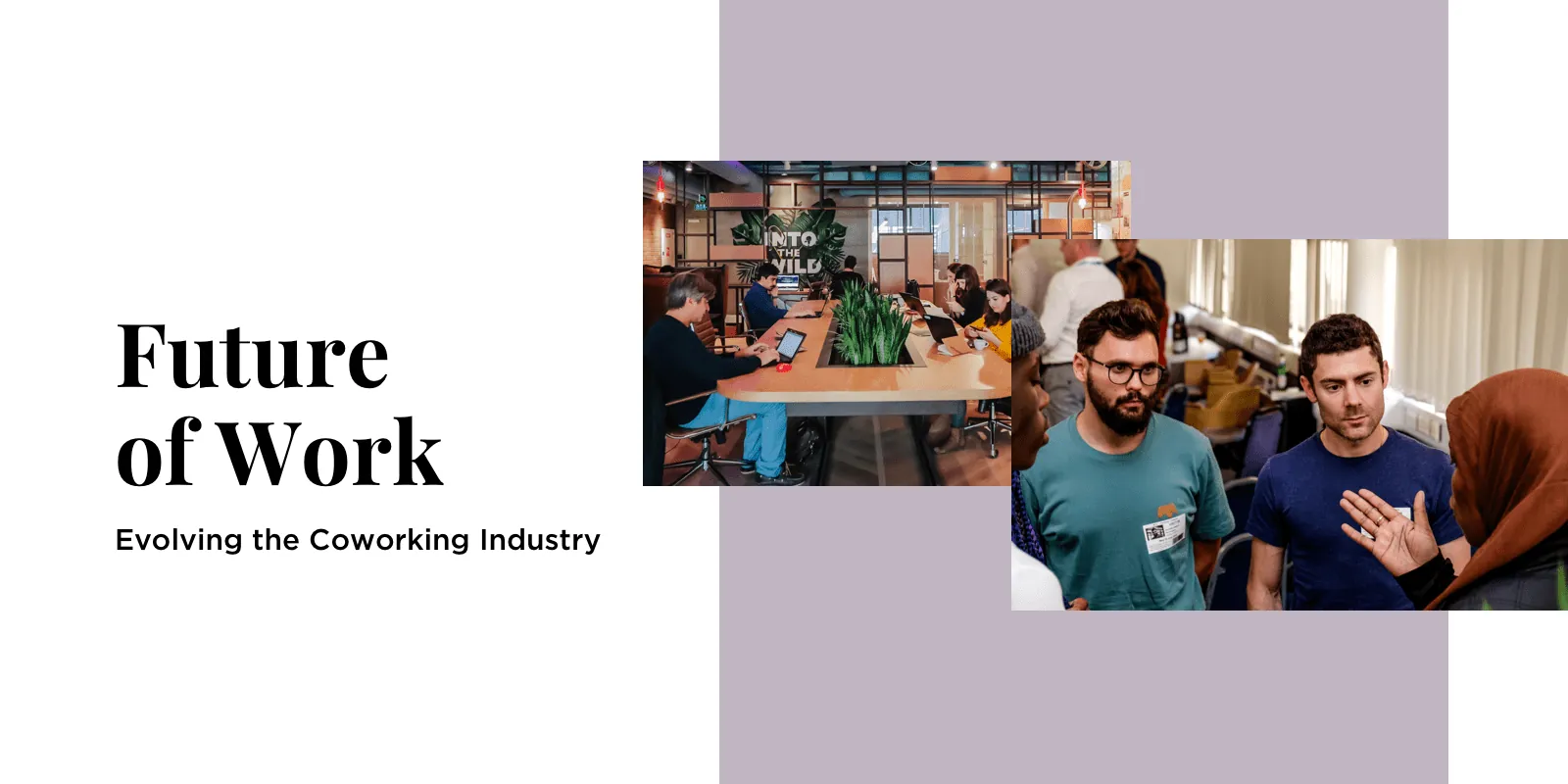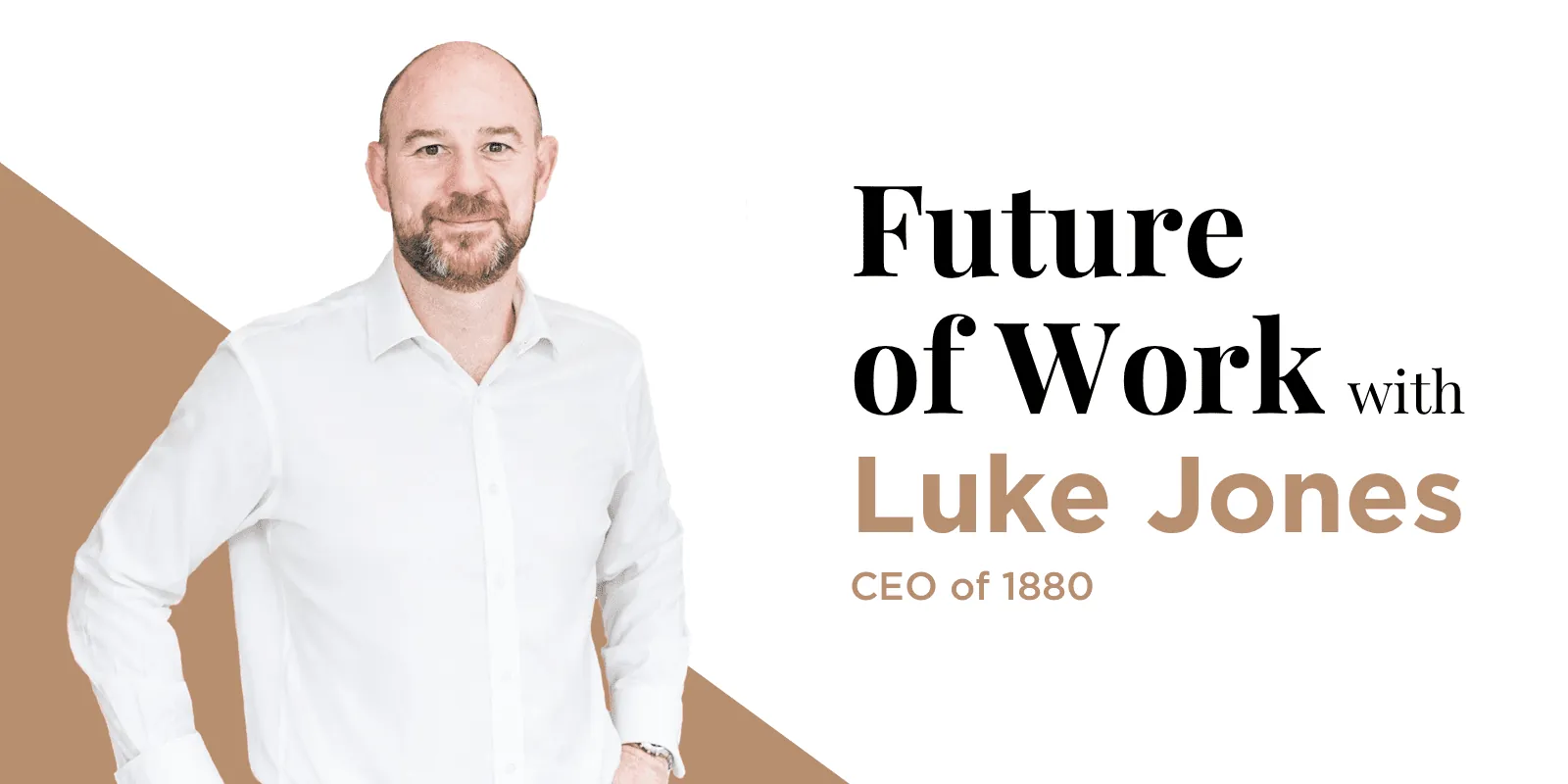
From a weekly salon series run out of a living room to the experience of living on a college campus, Luke Jones and founder Marc Nicholson pulled inspiration from all types of communities to create 1880 Bardo, Singapore’s new exclusive member’s club and coworking space. Without further ado, here’s Luke’s ‘future of work’ in his own words.
A quick look back to propel us into the future
When I think about the idea that inspired the creation of 1880, I’d say it comes back to our strong-held belief that fostering inspiring conversations and connections will make the world a better place. But what does that mean, exactly? It may seem counterintuitive, but the best way to explain our vision for the future of work is to wind back the clock a bit and step into the past.
Two or three generations back, you generally grew up in the same village that your grandparents grew up in and were raised in the same house that your family had owned for generations. Your kids were intermingled with the neighbor’s kids, functioning as one cohesive tribe. You’d all go to the same school, belong to the same church. That led to a strong sense of identity and tribe that naturally developed.
Nowadays, things are dramatically different. I’m a perfect example. I work in Singapore, live in Sweden, and I’m originally from England. And I’m not so misrepresentative of many people who live in Singapore, or for any large city for that matter.
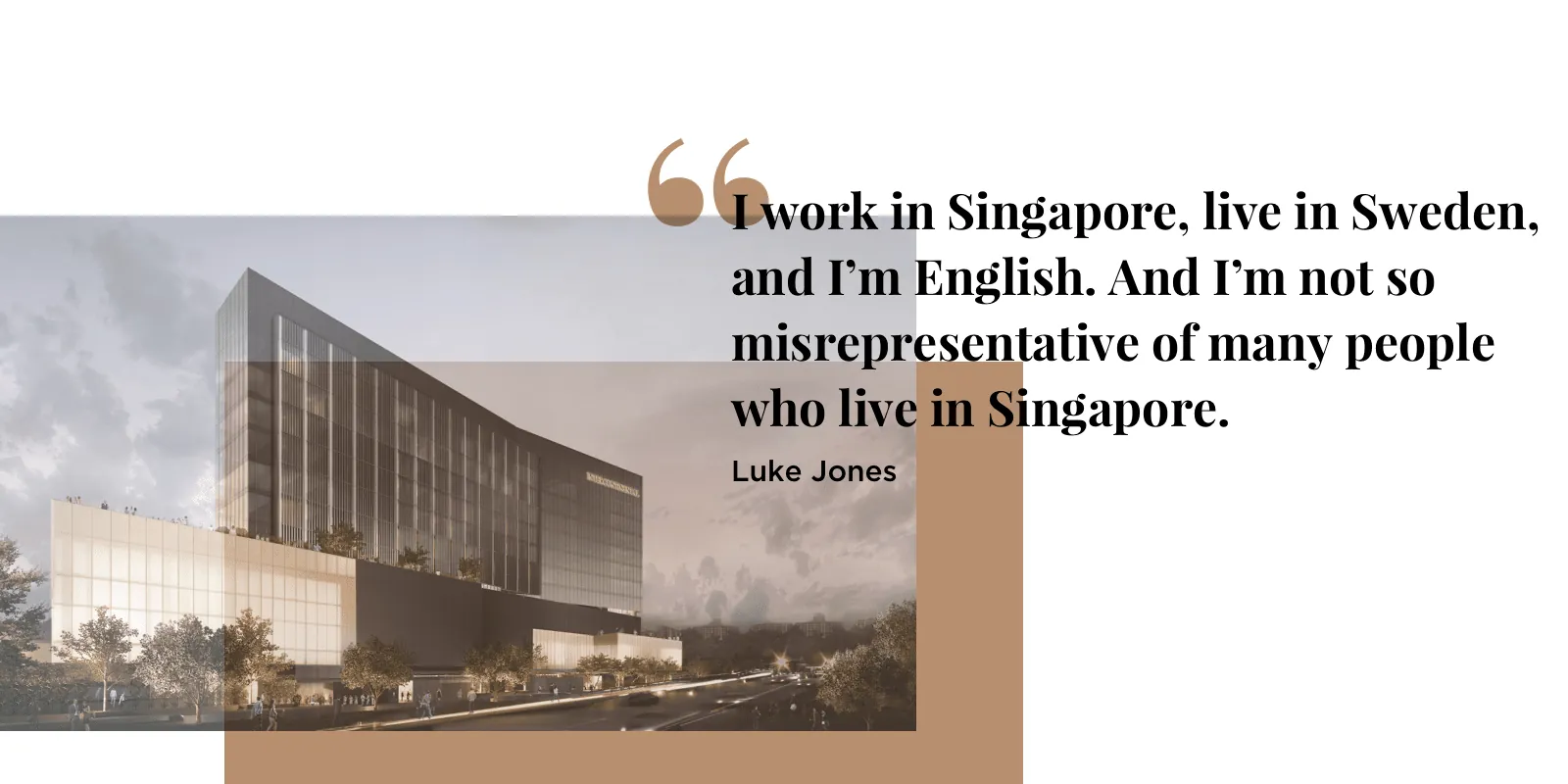
Singapore is a phenomenal, hugely impressive capital city in Southeast Asia. It’s got an amazing vision. However in terms of meeting like-minded people who share common goals and vision, it’s a hard thing to do.
Work and loneliness, in big cities especially, is such a problem. You look at the high levels of depression and suicide today, and it’s not in poor countries. It’s in very developed countries. A lot of it is to do with people who just don’t have enough friends, don’t have enough contact with other people. I think it’s our job to reverse that.
So one question I kept coming back to is: How can we create an enclave that allows these people to come together?
The magical power of the Wednesday Night salon
Again, a lot of what we’re trying to do at 1880 is offer a place for people to form their tribes. And we’re doing it by bringing interesting, engaging, authentic people together. Typically over food and drink, or through events and programing. That’s really the crux of the club.
And a lot of that comes from Marc, my partner and the founder of 1880. His parents set up a Wednesday Night salon in Montreal in 1982 that they continue to run out of their home. They’ve now ran this salon for 1,872 consecutive Wednesdays (and counting!), something which in my eyes is a truly remarkable feat.
In the middle of the first one in 1982 is Marc, who’s only 13 at the time. Over the years he saw firsthand the power of interesting people coming together in conversation, how that can have an incredible impact on the world and can create meaningful changes in people’s lives. Really, that’s the heart of the “why” when it comes to 1880 and what we’re looking to create with our member’s club here in Singapore. It’s very deeply ingrained in Marc’s background.
College and the staying power of strong community ties
I often think about trying to recreate my college experience. In many ways, it’s the modern day answer to that sort of ‘tribe mentality’ of decades past. When you’re in college, you all live on-site. And these are people who came here for a specific reason, meaning you have some shared commonality.
Additionally, there’s this exclusive element. Getting into college is no easy feat. There are barriers to entry and that leads to those who manage to get in feeling this sense of accomplishment. It also means you and your peers are generally of a similar caliber, which of course naturally leads to a more tight-knit community.
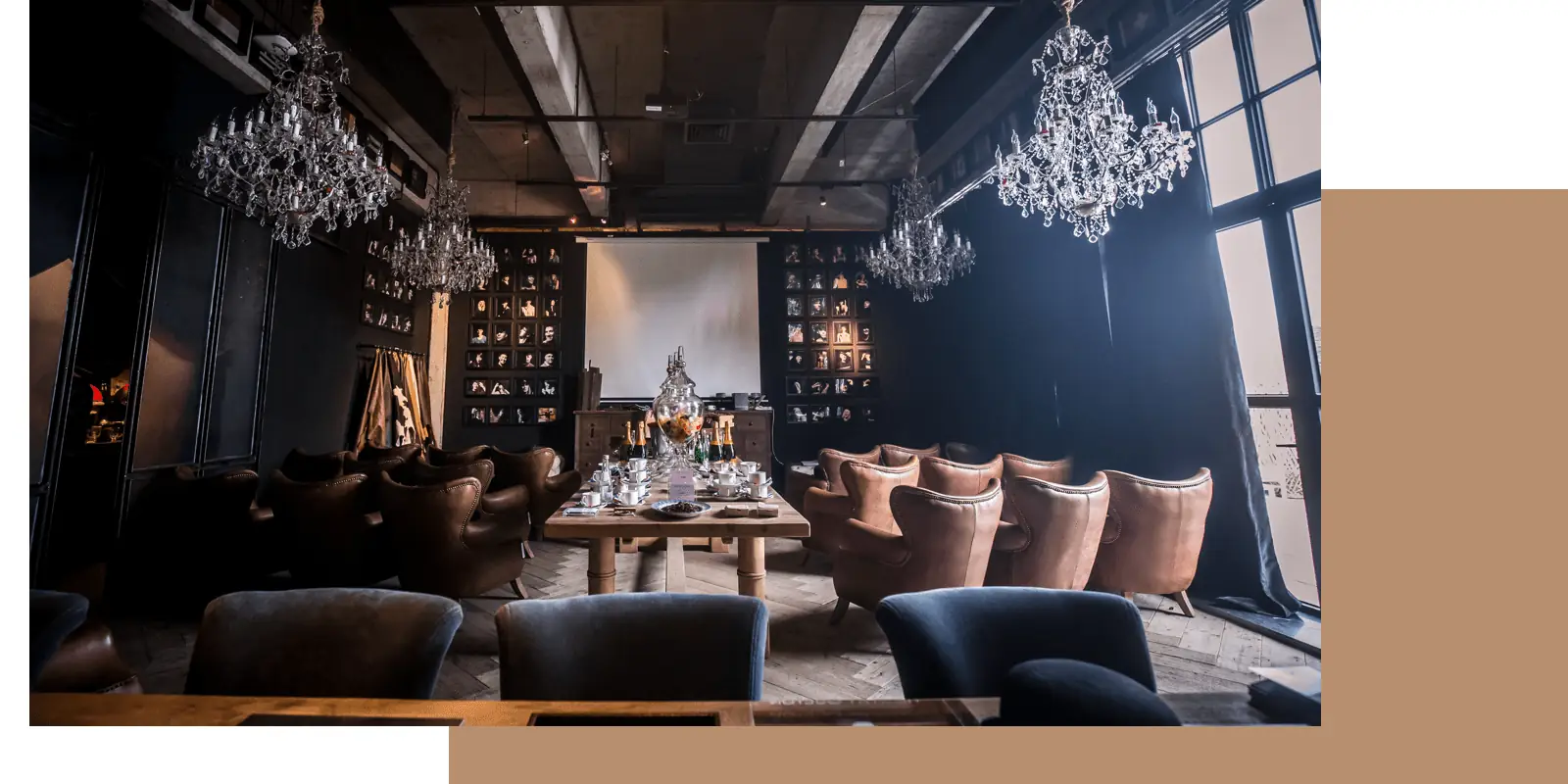
And I think about alumni a lot, too. Because the college experience doesn’t end when you graduate. You have certain clubs you were a part of and certain teams you played in and you have incredibly strong affiliations with them that last well after you leave.
It’s those experiences that really stand out and are reinforced throughout your life. College is an incredible example of modern-day community.
Exploring the grey area between work and life
Once you graduate and move out into the real world, life becomes a balance of personal and professional relationships, a balance of work and play. And I think the line between these worlds has become more and more blurred.
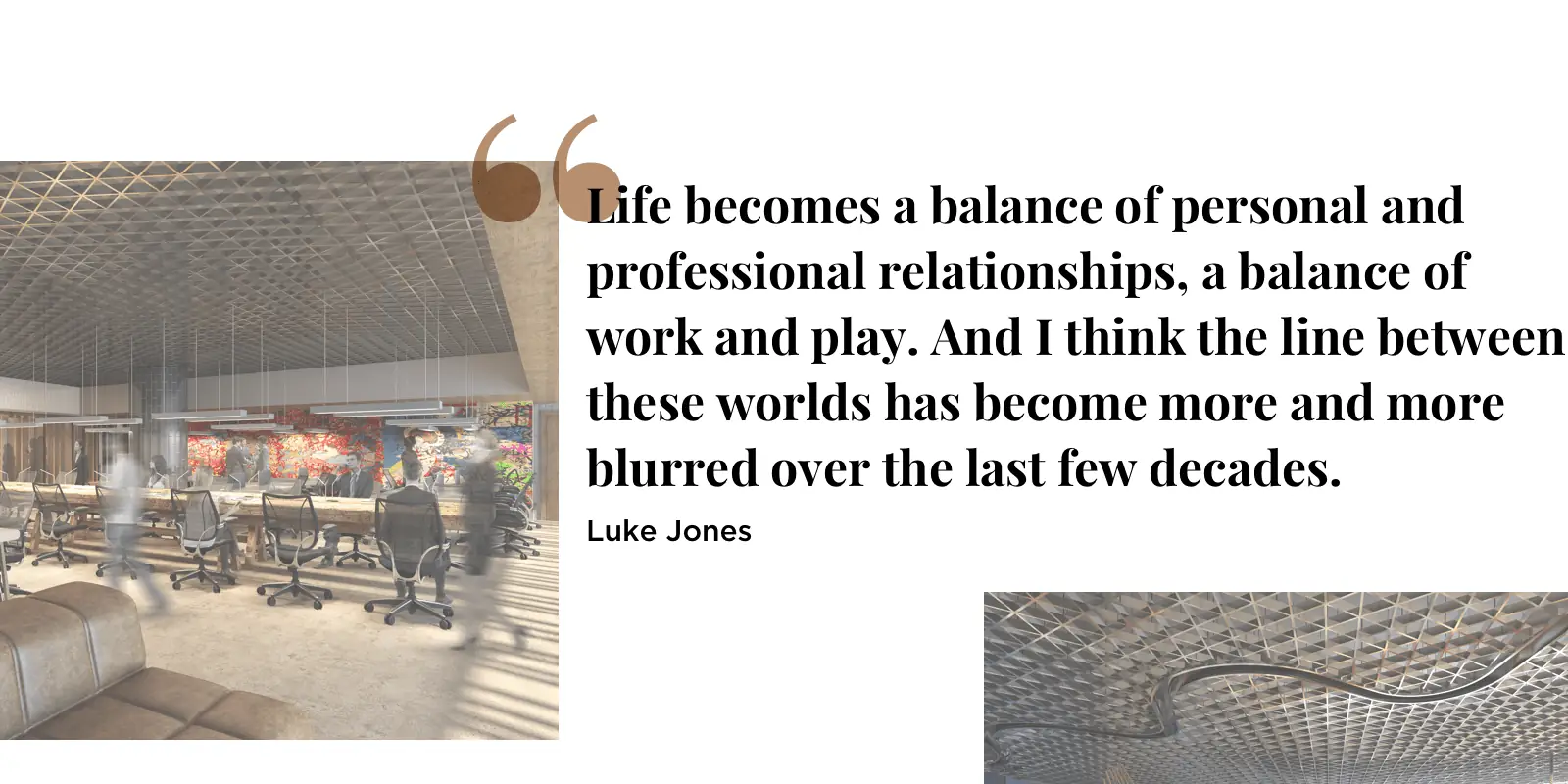
What we’re trying to do at 1880 is help our members establish deep connections with other members that perhaps blur the line between friendship and professional connection. Our view of the future of work is that work will continue to become more and more intermingled with the rest of our lives. That convergence is more apparent to me than ever before. So if that’s how our lives are being lived, why not create a destination that reflects that?
This means that building Bardo as a coworking space within the greater member’s club of 1880 is, in many ways, a direct reflection of the lifestyles of Marc, myself, and of those in Singapore who are members of our club. That division between life, work, and play has never been less clear to me than it is now.
I entered the workforce as a chartered accountant. And ultimately what that meant is I got to work at 9 every day when work started, worked out of a box basically, then left at 6 when work finished. It was very clear what work was and when it ended. Thankfully, over the last 20 years I’ve worked in more entrepreneurial-minded worlds where it’s increasingly harder to know whether something is work or something is pleasure or something is intellectual stimulation. And quite often, it’s all three at the same time.
When we look at our lifestyles nowadays, there’s so much more convergence now in a person’s life, a social, business, and intellectual confluence if you will. And so it was important that we build a physical space that both supports and reflects that lifestyle.
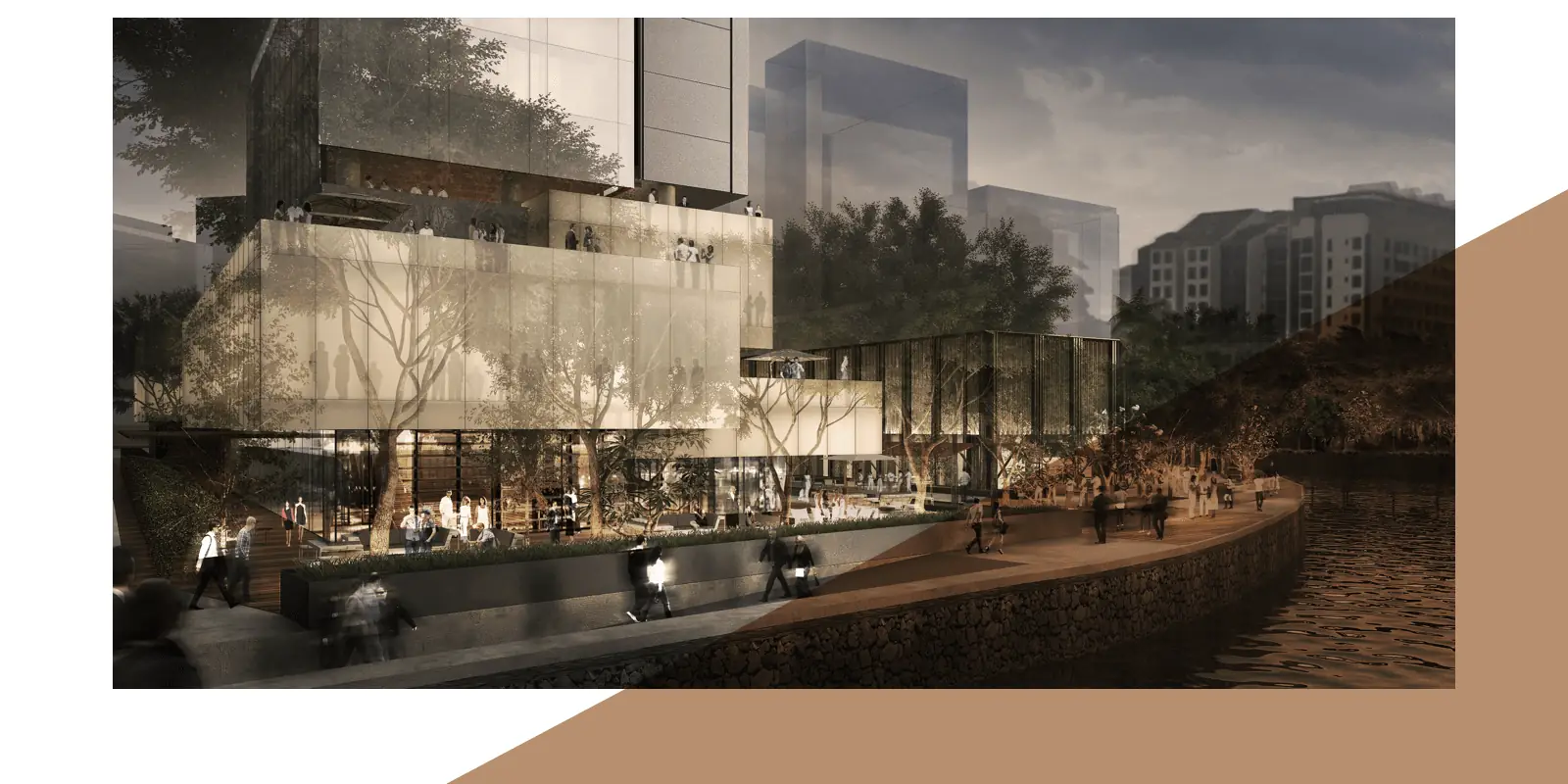
Designing the member experience from the ground up
My other business interest is a home furnishings brand called Timothy Oulton. So when Marc and I first met, before I had any official partnership with 1880, I knew that the Timothy Oulton brand was expanding to really consider the experience of the space, beyond just the furniture. I saw the potential in a partnership like this. I knew our brand could create something truly remarkable for the members, an interior that was as inspiring as the people who worked there. In this way, 1880 has become an incredible flagship to show off our capabilities in that realm. To be able to show 2,000 of Asia’s most interesting people what the brand does, and what the brand can do, is very exciting. And we take that member experience very seriously.
Actually, there was an interior designer from Neuehouse who we spoke with when we were planning out our space. He shared that one of the things they’re doing at Neuehouse is immersing people in what they are all about as soon as people get off the elevator.
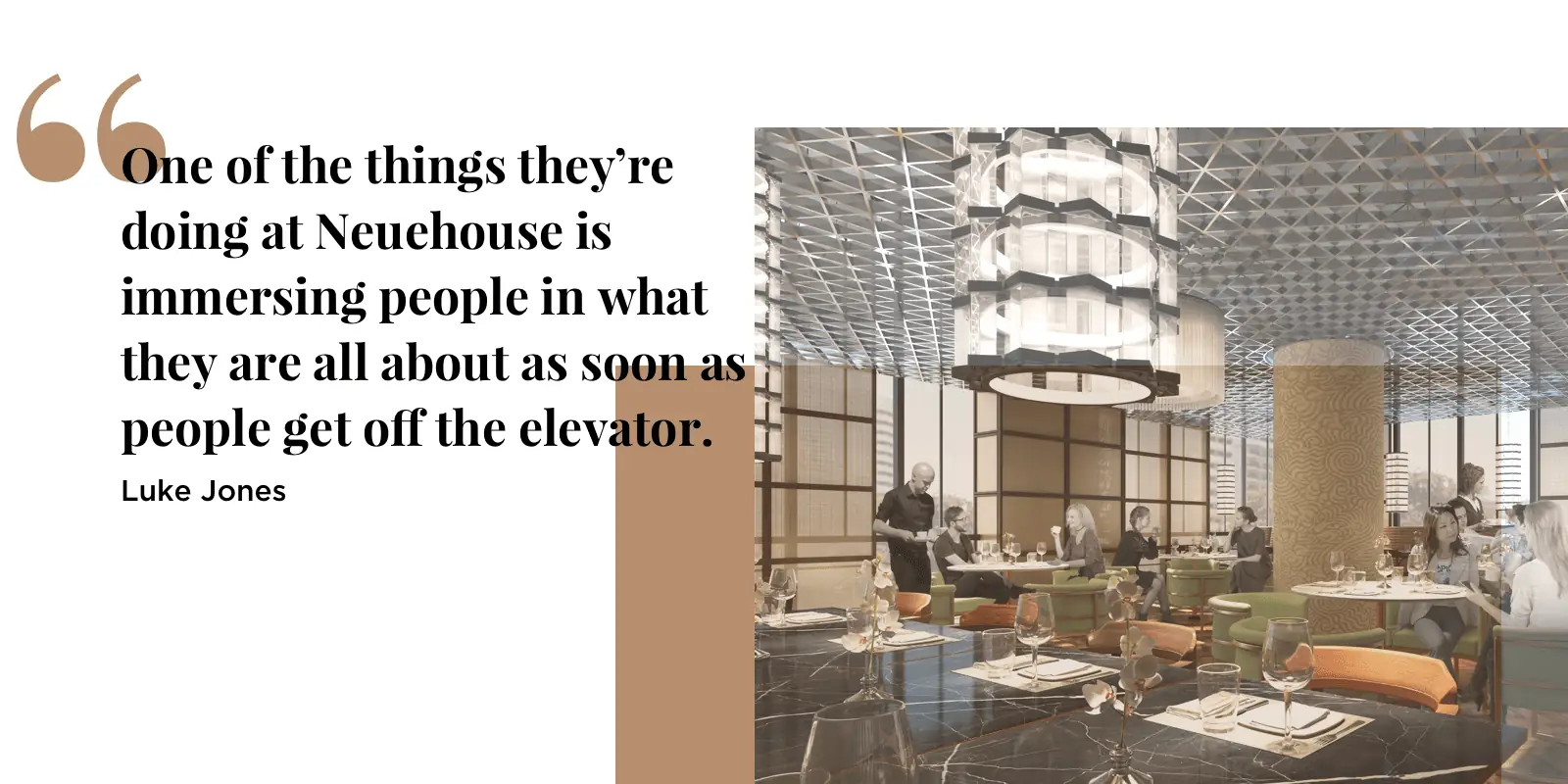
And we found that wonderful, really. If the core pillars of our business are around creating conversations and opportunities for inspiration and collaboration over food and drink, why not throw them into a coffee shop sort of environment as their first impression once the elevator doors open? And so we really took that to heart, when it came to the physical design of the 1880.
Because ultimately, that’s what the club’s all about—grabbing a cup of coffee and chatting with the barista, or taking someone away for a quick chat. That’s the kind of community we’re looking to create: welcoming, inspirational, lively. So it was very important to us to make sure the physical space–everything from structural design to the furniture to the interior design–supported the vision.
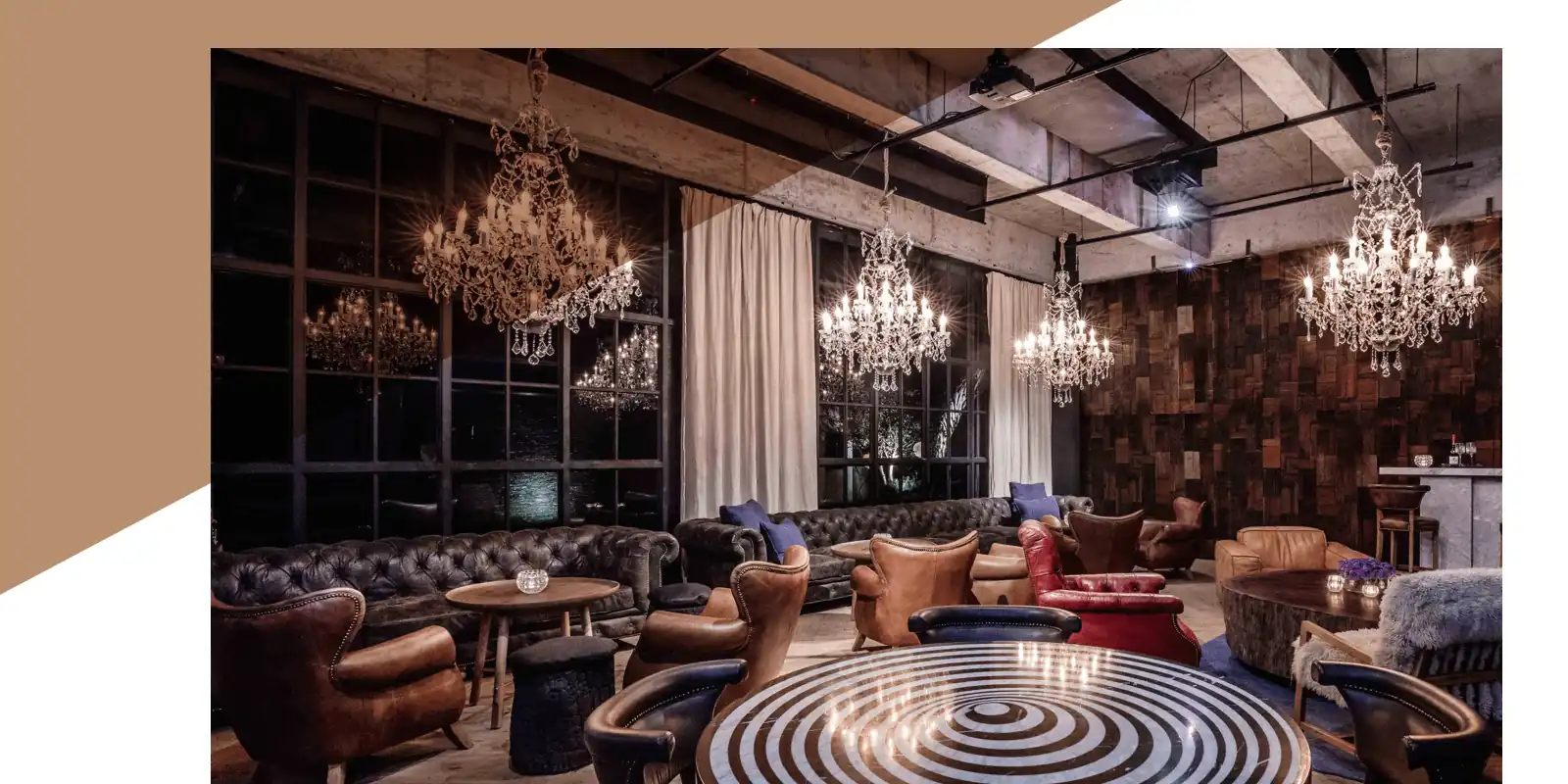
Creating a lasting impact
When I think about where I’d like to see 1880 in three, five, ten years’ time, I come back to this idea of legacy. I want the members of our community to gain so much inspiration from the friendships and partnerships they find here that it sticks with them forever.
I’ve had the pleasure of meeting founding members of places like Soho House (formerly Shoreditch House), individuals who were a part of building the foundation and initial sense of community of these now prestigious membership clubs. And what I’ve seen is that when they’ve been there since the beginning and now reach into their pocket or their bag to fish out their founding membership card to show it to you, you can see tears in their eyes. It’s a really, really big thing for them.
So for me, that’s the dream–to see founding members of 1880 in three to four years’ time start welling up with tears when they get their founding membership card out. That’s the ambition, anyway.
Luke Jones, CEO of 1880 Bardo, as told to Mara Savina Falstein exclusively for the Optix blog.
The ‘Future of Work’ series shares insights from thought leaders who are on a mission to drive the future of work forward. We speak with members of our diverse network of entrepreneurs, journalists, flexible workplace operators and others, then distill their insights into a 5-15 minute read you can enjoy while sipping your cup of coffee and preparing to start your day.

